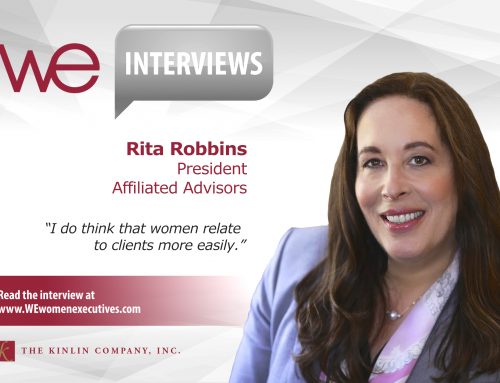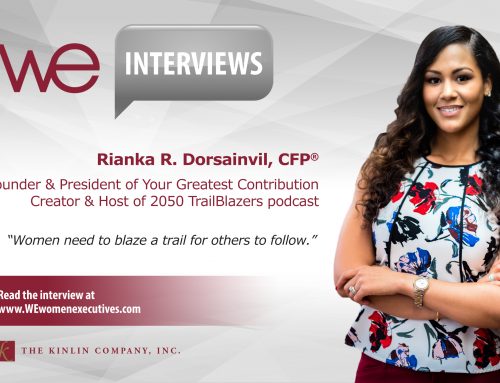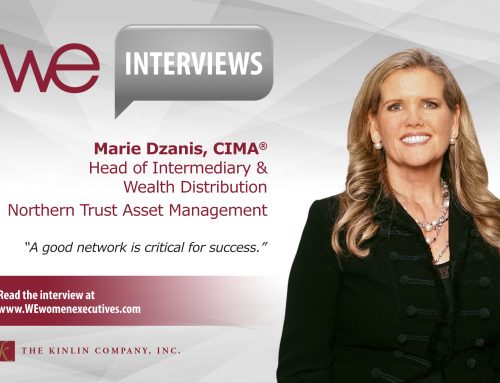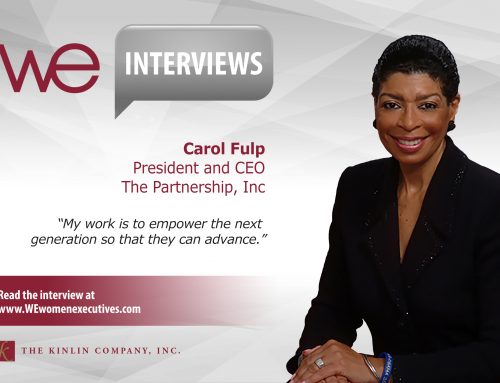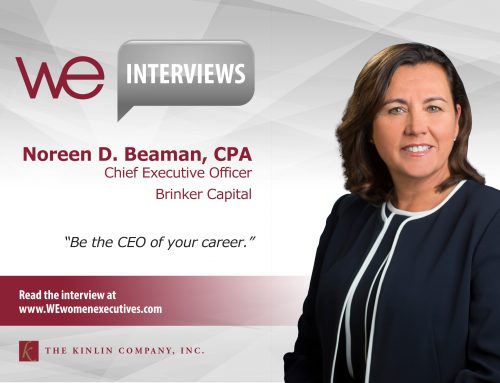 Janet Foutty
Janet Foutty
CEO and Chairman
Deloitte Consulting LLP
Janet Foutty is CEO and Chairman of Deloitte Consulting LLP and is based in Chicago, Illinois. She is the only female CEO to lead a consulting practice of this size, scope and scale, with oversight of some 35,000 employees in the U.S., India, Mexico and Germany.
I recently sat down to speak with Foutty about her journey to the CEO’s office, her views of mentors and sponsors, and her perspective on the skills that lead to success.
A commitment to continuous learning
To begin our conversation, I asked Janet to give me a sense of the skills that have been most helpful in getting her to her roles today.
“I started in consulting right out of business school, thinking I would do this for a couple of years until I figured out what I wanted to be when I grew up. That was just over 25 years ago. To have the great privilege to be in this role was not part of a grand life plan.
“I’ve had four big chapters to my career. The first was helping to transform the back office of Wall Street at the intersection of technology and the Street through the 1990s and early 2000s. I then led Deloitte’s technology business, which included helping to build our capabilities in India and launching the Deloitte Digital business. Next was a big left turn to my hometown of Washington DC for a few years to lead our federal business – all the technology and strategy work we do for the federal government. Then, in January of last year, I stepped into my current role.
“In other words, I’ve done very different things over the course of my career. The variety and continuous learning – sometimes with respect to topics I knew a lot about and other times when I had to get up to speed with the help of some amazing teams who knew a whole lot more about those businesses than I did – were the things that prepared me the most.”
You say that you surrounded yourself with people that knew more than you did about a particular function or industry. With that in mind, how did you position yourself for upward mobility?
“I’ve had terrific sets of mentors and sponsors. This might sound a little counter intuitive, but I always made it clear to others that I was not focused on what was next. I focused on doing an amazing job and creating success for myself and others – my clients first and foremost and my colleagues, of course. My sponsors and mentors also knew that I liked variety and change, so they kept helping me to identify places where I could have a broader platform.
“Clearly I did not say, ‘I’m in this role because it will position me perfectly for that role.’ Instead, my attitude was, ‘I’m in this role because it’s really interesting and I think I can have an impact.’ Then I would throw myself into the job 150 percent. I also kept conversations active with my mentors, and even more so with my sponsors.”
A belief in mentors and sponsors
I was intrigued by Foutty’s reference to both mentors and sponsors and eager to learn more. Have these types of individuals played a critical role in your success, I asked, and in your mind, how do their roles differ?
“Both have played an important role, though probably sponsors more than mentors. I wish the sponsorship language had been more evolved when I was starting my career, because I think that in the intervening years, we’ve come to understand the importance of sponsorship.
“I view a mentor as an advisor and a coach, whereas I see a sponsor as someone who’s willing to put his or her political capital at risk to help you personally. My father grew up in the scientific community, which has sponsorship at its core – you become a wildly successful scientist by developing the next generation of wildly successful scientists and the apprenticeship period is very long. Therefore this idea of sponsoring people, sometimes even those that you don’t know well, is something I heard discussed around the dinner table growing up.
“My sponsors have changed over time. There are a couple of people who have stayed through the years, but I’ve also met new sponsors as my career has evolved. These individuals have invested time in coaching and advising me and have also been willing to put their necks out by enlisting others to help me.
“I don’t want to name names because there are so many people who have helped me during my career, but I can offer a couple of examples that come to mind. For example, when I joined Deloitte, there was a specific partner who was very supportive of me. Her confidence in me early in my career was critical. I absolutely would not be here were it not for her support and her willingness to take political risks on my behalf.
“Even today, I still need sponsors and am fortunate enough to have leaders at the global level who have helped me think about how to be effective in this job.
“Now I have the great privilege of working for the first woman CEO of a Big Four firm, Cathy Engelbert. She and I did not work together frequently before I took this role – she’d been on the board and I had presented to the board a number of times—but our paths had not crossed substantively. Yet she’s been great from the very first time we sat down to talk about her role and the role she thought I might end up playing. The investment that she’s made in me in the last year has been wonderful.
“I’ve been really fortunate to receive guidance from senior mentors and sponsors, but the mentoring I get from some of my key team members who are less tenured than I am is also pretty amazing; I learn as much from them as they learn from me.”
An interest in technology and talent
While committed mentors and sponsors have undoubtedly helped Foutty over the course of her career, I also knew that her own drive and experience had played an essential role. What aspects of the experience she has gathered to date prepared her for her current role as CEO, I inquired.
“As I mentioned earlier, I’ve enjoyed a lot of variety in my career. Technology has been an ongoing thread. I’m not a technologist by background, but I’ve been in and around technology for much of my career, and given that the digital conversation is top of mind for every client executive I spend time with, that experience has definitely helped me.
“The second important element is talent. From the earliest days in my career, I’ve been interested in the talent dimension of our business. For example, right after I joined the firm I became involved with recruiting; I gave a lot of thought as to how best to recruit the next classes out of my own business school. I also got very involved in mentoring and sponsoring women as well as under-represented minorities and veterans. These activities not only helped prepare me for a job that has responsibility for a lot of people, but they also gave me a skill that’s very market-relevant, namely how to attract, develop, and retain the best talent, an issue that’s very important to our clients.
“There are a couple of things on the leadership front as well. For one, I make a conscious effort to build teams of people who are highly complementary to me and usually, if not always, smarter than me. They challenge me and push my thinking, something that I believe has been key to my own success as well as to the success of the businesses I’ve led.
The second thing within leadership is my focus on communication. I’ve spent a lot of time developing both written and oral communication skills among my direct reports. I talk to our junior practitioners about how they invest their time because I know how important communication skills can be. For example, when you need to convince a client that your approach is right, you often do it in writing. You also make your case in the conference room, in the boardroom, in formal presentations, etc. These exchanges require both written and oral communication skills, which have been invaluable in maintaining a sense of culture, alignment, and connectedness in a partnership that has become quite large.”
A willingness to be fearless, focused and confident
Foutty’s discussion of her interest in talent development and the skill set that has propelled her into the corner office offered a natural segue into my final question. What two or three pieces of advice would you give to other women who are eager to take that next step forward in their careers, I queried.
- Be fearless about surrounding yourself with the smartest people you possibly can.
- Tailor your communications to your audience. Make it clear what’s most important to you and to the businesses or the organizations for which you are responsible.
- Portray confidence. Work with people who give you confidence and energy and make sure that you believe in yourself as much as those around you do.


